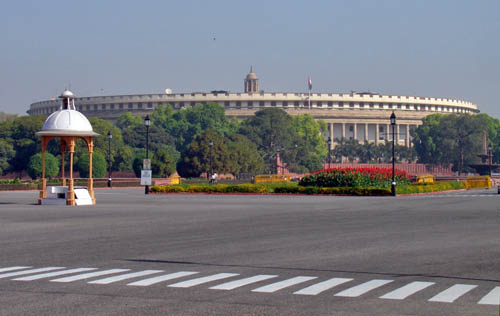 Track2Realty-Agencies: The Union Cabinet on today, Oct 25, is likely to discuss the bill to regulate the real estate sector and also protect the interests of home buyers.
Track2Realty-Agencies: The Union Cabinet on today, Oct 25, is likely to discuss the bill to regulate the real estate sector and also protect the interests of home buyers.
Sources in the government said that the Real Estate (Regulation and Development) Bill, 2012 (pending since its inception in 2009) is high on the agenda of the Union cabinet and the government intends to introduce the bill in the upcoming winter session of Parliament.
The draft legislation of Ministry of Housing and Poverty Alleviation (HUPA) seeks to set up a watchdog for regulation and planned development of the hitherto uncontrolled sector, which will also ensure sale of immovable property in an efficient and transparent manner. The legislation proposes setting up of a real estate regulatory authority in every state.
The Real Estate (Regulation and Development) Bill, which has been cleared by the Law Ministry, seeks to prevent unscrupulous real estate developers from fleecing consumers. According to an official the ministry is planning to introduce the bill during the Winter Session of Parliament.
The ministry, however, has diluted the plan after getting feedback from the states and other stakeholders, including realtors. Sources said the new proposal will deal only with property transactions as it comes under the Concurrent List.
The draft legislation provides punishment for selling a project without registration with the proposed regulator. All developers or builders working on a project, where the plot exceeds 1,000 square metres, will have to register themselves with the regulator before launching – or even advertising – the venture. Any violation will attract a maximum of three years’ imprisonment or a fine of up to 10% of the project cost or both.
An official said in the new proposal, the size of the land proposed to be developed has been brought down to 1,000 square metres from the earlier 4,000 square metres for coverage under the bill. States have been given freedom to change the limit, the official said. Realtors will have to submit project details – approved layout plan, timeline, cost and sales agreement proposal – to the regulator. It will be mandatory for builders to fulfill disclosure clause to get permission from the regulator to advertise the project.
The bill proposes imprisonment of up to a year or fine extending to 5% of the project cost for violation of contractual conditions. The regulator will be headed by a chairman and two members – to be appointed by the state government.
The official maintained there was provision for two-tier system for redress of buyer’s grievances – a regulatory authority at the state level and an appellate tribunal at the Centre.
Incidentally, the real estate sector has of late assumed greater significance with a projected revenue growth to the tune of $180 billion by 2020 at a rate of 30 per cent per year from now. In the last one decade the sector has attracted about $9 billion, as 100% FDI is allowed through automatic route.





